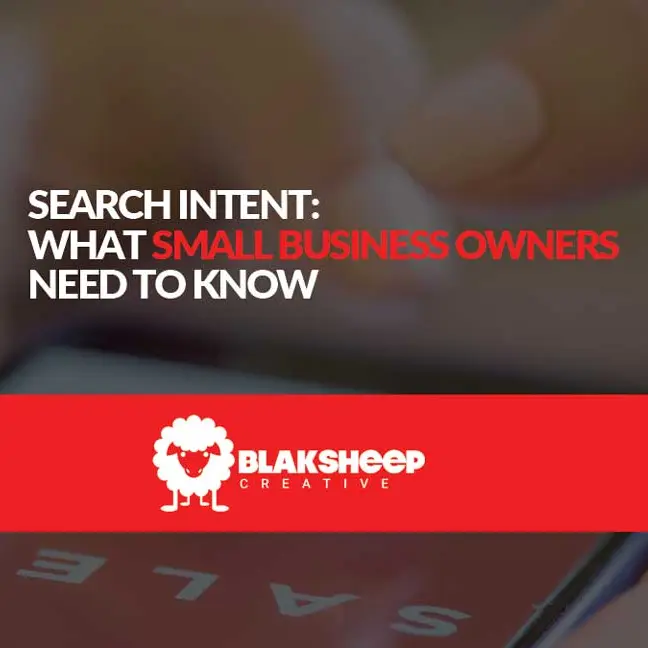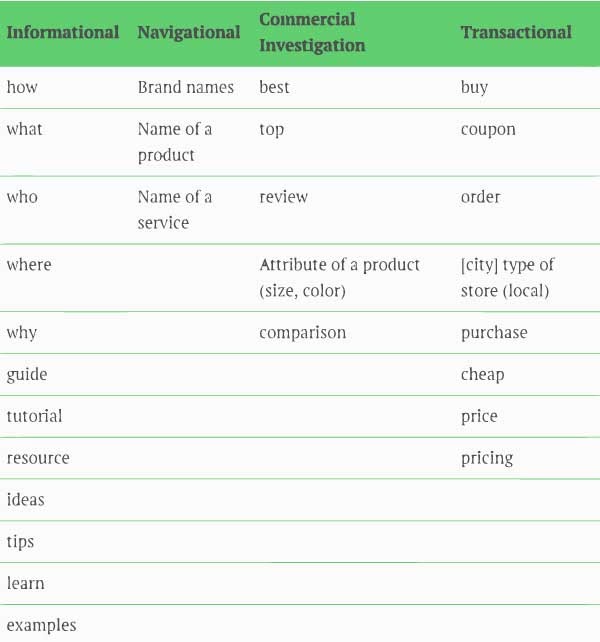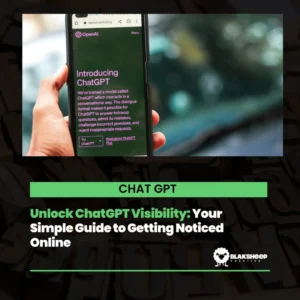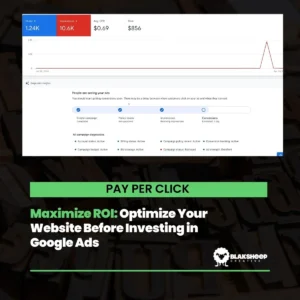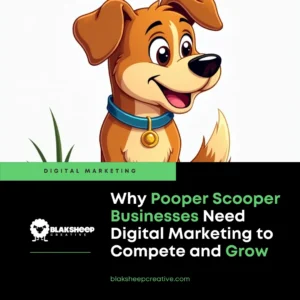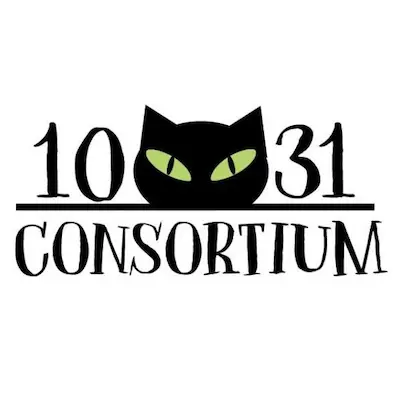In order for your website to serve its’ purpose, you need to know why users are conducting a specific search to end up on it. This article will try to answer all of your questions about search intent and why you need to understand it for your small business’s success online.
What Is Search Intent?
We said earlier, search intent (or searcher intent) is simply, “why are people searching for a specific term or terms.” Why are they searching for that particular long-tail keyword or phrase?
- Do they need an answer to a specific question?
- Are they searching for a specific website?
- Are they shopping to buy a certain product?
Get A FREE Consultation
Do you want a FREE 30-minute consultation to discuss your business’s marketing needs? Learn how we can increase your web traffic to earn higher-quality customers and convert them into sales!
Ever since they took over the search engine world, Google’s algorithms have changed dramatically to provide high-quality results that better determine the user’s search intent. They rank pages the best that they can by determining the searcher’s intent. In the past, a little keyword research was good enough to rank a webpage. In 2020, this was no longer the case.
Google’s most recent algorithms are now focused on combining both the searcher’s intent and the best optimized long-tail keywords.
So basically, it’s critical that you optimize your pages for your potential customers’ intent-based searches and use the right keywords to help them find what they want (if it’s on your website..).
Related Reading
- 3 Reasons Why Local SEO Absolutely Needs to be on Your Priority List.
- Content / Inbound Marketing: What you need to know about it, and why you need to use it right now!
- Why is Search Engine Optimization Important?
- Why you Need Affordable Small Business SEO to Survive in 2020.
What are the Four Types of Search Intent?
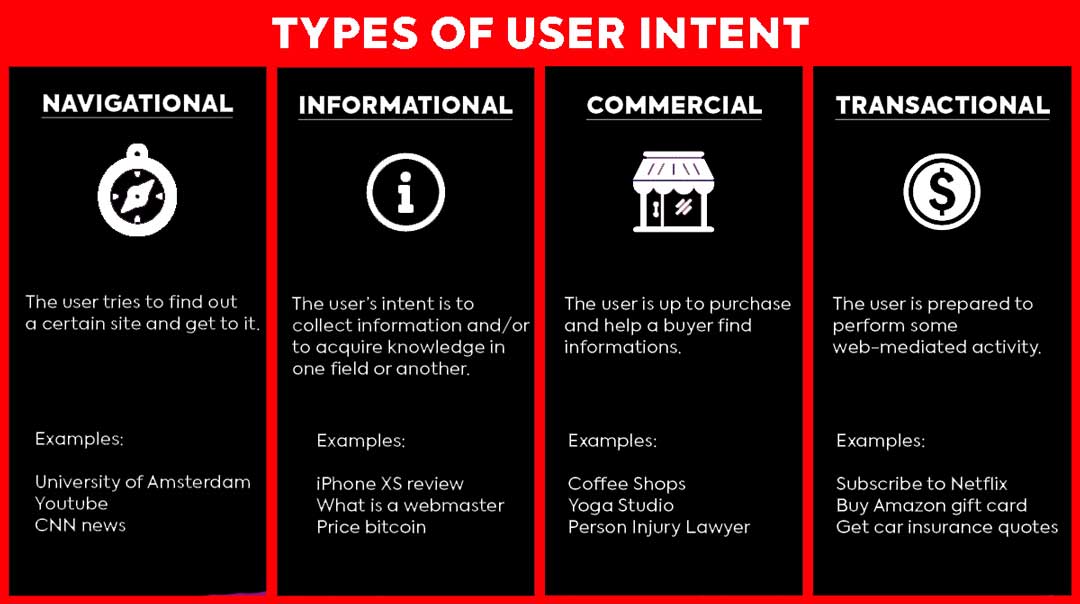
As the title above states, there are four common types of search intent. Let’s go ahead and break them down in easy, easy-to-understand terms.
Informational Search Intent
The most common search intent is what’s called informational search intent. People use search engines every day, and those search queries are information-related. Whether users are searching for weather information, SEO guides, or recipe ideas, this type of intent answers a specific question or gives us a broad view of a certain topic. Examples of informational search intent are:
- “How many licks does it take to get to the center of a Tootsie Roll Pop?”
- “How far is Louisiana from Texas?”
- “What is the population of Denham Springs, Louisiana?”
- “Who was the BCS world championship football team in 2019?” (LSU Tigers of course!)
Navigational Search Intent
Navigational search intent is one of the least common types of search intent. Users with navigational search intent are searching for one particular (and specific) website.
Navigational search intent only benefits your small business’s website by driving organic traffic to it.
The downside: your site has to be the one they’re looking for, or you’ll receive no traffic.
Yoast SEO plugin for Google Analytics plugin and ranked well for the keyword, you guess it, “Google Analytics.”
But, this did not drive any traffic to their site because users were only looking for the Google Analytics website and were rarely ever interested in the GA plugin.
Some examples of navigational search intent are:
- “Youtube”
- “Facebook”
- “Apple”
- “Tigerdroppings” (that’s an online forum in case you didn’t know)
Transactional Search Intent
With transactional search intent, the searcher wants to make a purchase. They’re in buying mode. Chances are, they already know what they want to buy. They’re just looking for a place to buy it from.
If you’re an e-commerce company, transactional search intent is exactly what you’re looking for and is the 3rd most important of the four listed here. Here’s why.
Due to the popularity of online shopping (especially during the COVID-19 crisis, we’re currently in at the time of writing this article), transactional search intent has increased. Users’ intentions are to purchase products online. Let’s make sure that it’s yours they find.
Transactional intent and informational intent can both be used in conjunction with each other. It’s common for a user to not only be looking for the best product (informational search intent) but for the best price as well (transactional search intent). Some transactional intent-based searches may look like this:
- “buy ford explorer”
- “apple coupon”
- “iPhone 10 cheap”
- “LSU season ticket price”
Our next and final common search intent is what’s known as commercial investigation.
Commercial Search Intent (Commercial Investigation Intent)
Similar to transactional search intent, with commercial search intent (also known as commercial investigation intent or commercial intent), the searcher is in the market for a specific product or service but has yet to make a final decision on which solution is the fit for them.
They’re most likely looking for reviews and comparisons and are still weighing up their options. Here are some examples of commercial search intent:
- “What product is best for cleaning carpet?”
- “What is the best SEO agency in Baton Rouge?” (that’s us of course!)
- “What is the best WordPress SEO plugin?”
- “Is Tik-Tok dangerous for my young children?”
Basically, with commercial search intent, users need more convincing before purchasing or downloading content.
How Do I Figure Out Search Intent?
All you have to do to find the search intent is to just look at the wording of the query itself.
For example, take the keyword “buy mardi gras beads.” It’s clear that the searcher is in the market to buy some mardi gras beads. On the other hand, someone searching for “how to make a king cake” is looking for an answer (informational).
Here are some other keyword “modifiers” that typically indicate a certain type of search intent:
If you’re using a keyword research tool like Ahrefs, you can use these modifiers to filter for keywords with specific intent when doing keyword research.
- Learn how to perform keyword research and more about local business SEO on our recent blog post “Super Easy SEO for Small Business Owners”.
So, say that you’re looking for some relevant transactional keywords for a blog post. First, enter a few seed keywords into Ahrefs Keywords Explorer and hit search
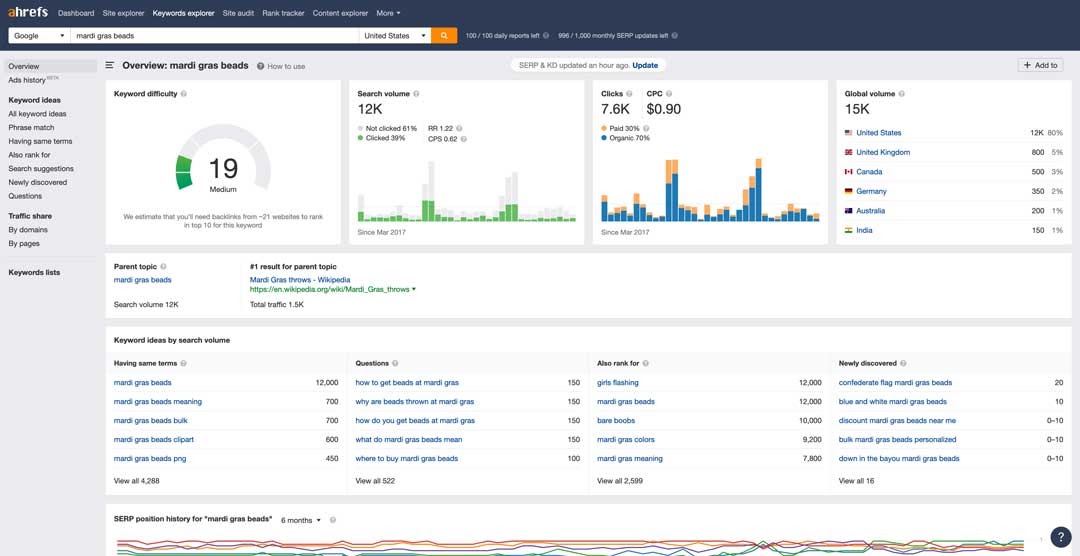
Then, let’s choose the “Having same terms” report on the left-hand menu to see some keyword ideas. You can use any report; we just like to start with this one.
Next, either type in or copy and paste some modifier words into the “Include” box and switch the toggle to “Any word.”
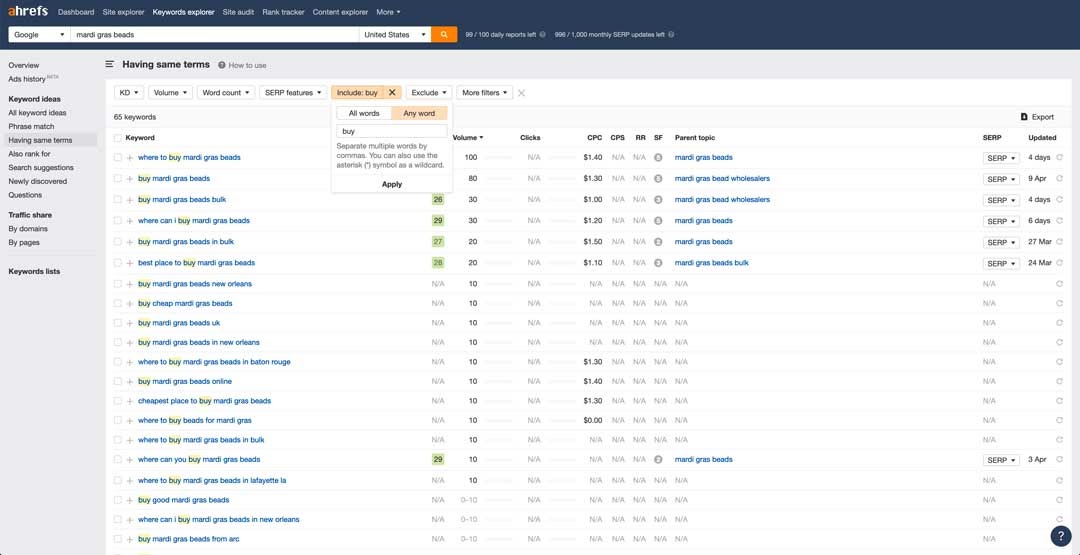
You will now see only keywords containing one or more of those modifiers.
You can do the same thing when looking for informational, commercial investigation, or navigational keywords. Just copy-paste the list of modifiers into the “include” box.
Want to learn a trick on how to find informational keywords? Use the Questions report in Keywords Explorer. This filters for question-type keywords, which almost always have informational intent.
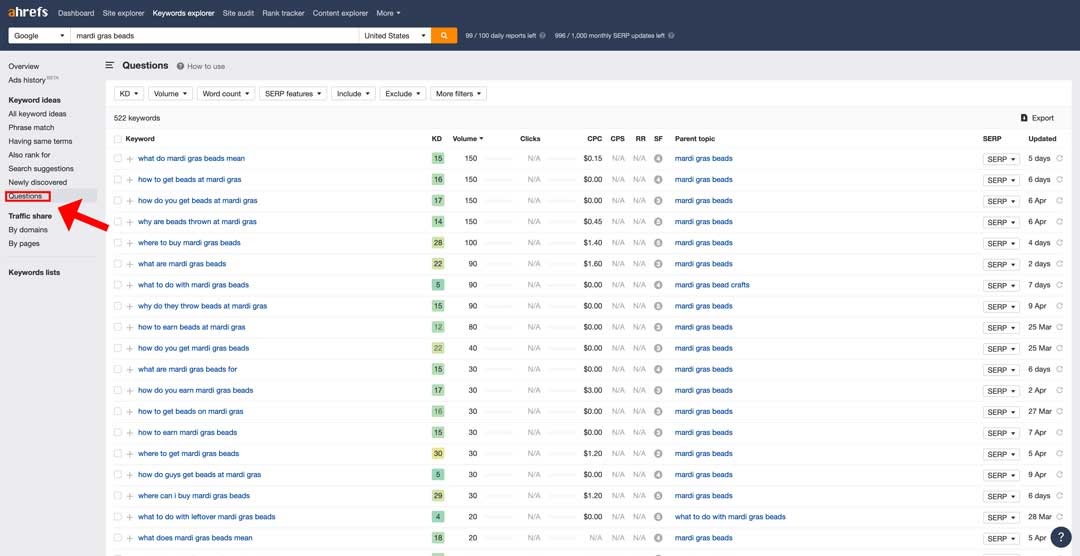
From there, you can add more filters to drill down on the keywords that matter to you. For example, if you’re looking for low-competition, high-volume topics, you can add a Keyword Difficulty (KD) and volume filter.

But, this method isn’t foolproof because not all keywords have modifiers. You shouldn’t rely on modifiers to figure out search intent. If you do, you could miss out on a lot of good keyword ideas.
Be sure to look at the SERPs.
Have you ever searched in Google and seen something like this in the search results?
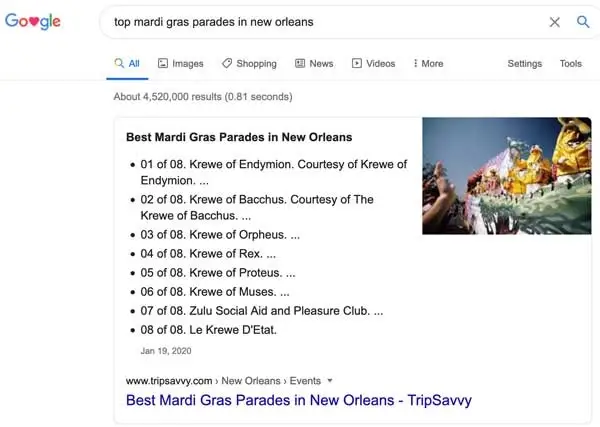
This is what’s called a featured snippet (not to be confused with a rich snippet.) It’s one of the many SERP features that Google sometimes shows. Other examples are:
- Shopping results
- Knowledge cards
- AdWords ads
- Related questions
- Video results
Here’s why this is important for determining search intent:
Although they show them at their discretion (no one knows why or when), Google tends to show certain SERP features more or less frequently, depending on the intent of the search. So we can use the presence (or absence) of SERP features to help infer the search intent of a query.
For example, featured snippets tend to show up mostly for informational queries, whereas shopping results and carousels usually only show up for queries with transactional intent.
You can see what we’re talking about in the image below. Also, note that the Google Map Pack shows up with local options to “buy mardi gras beads,” in this case, those stores in the Baton Rouge, Louisiana area.
(if you’re not sure what the Google Map Pack is, be sure to go read our article “Super Easy SEO for Small Business Owners.”
Here’s a rough guide to refer to:
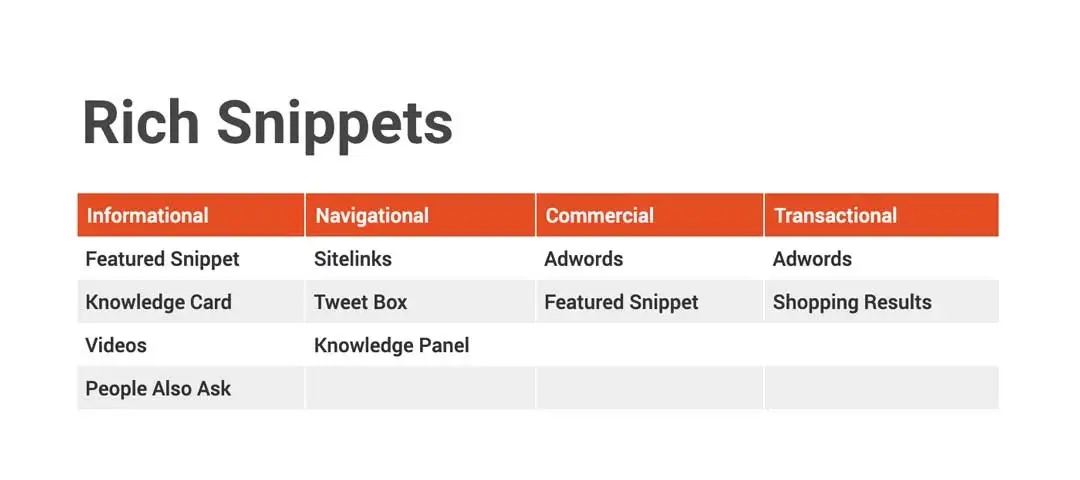
To find keywords that have particular SERP features, just include or exclude keywords with certain SERP features from your report in Ahrefs’ Keywords Explorer.
For example, if we were looking for keywords with transactional or commercial navigation intent, we could choose to include only keywords with shopping SERP features:

If we were looking for keywords with informational intent, I could focus on SERPs with featured snippets, knowledge panels, or “people also ask” boxes:

Now, as much as you’re not going to want to hear this, looking at the presence of SERP features isn’t 100% foolproof. There are plenty of informational keywords that don’t elicit featured snippets, or knowledge panels, and so on. And there are plenty of transactional queries that don’t show shopping carousels or AdWords ads.
For example, take note of the SERP features present for “tabasco sauce gift set”:
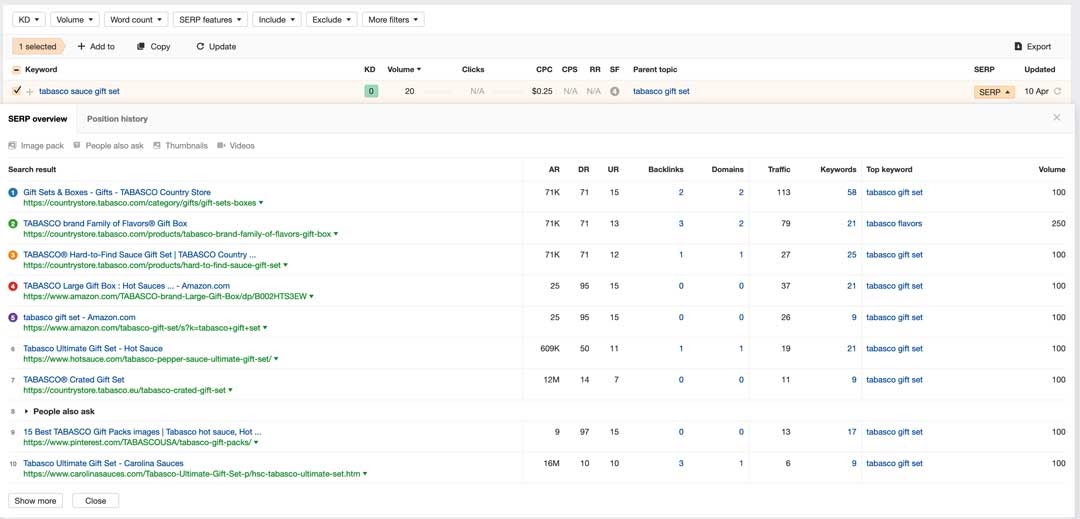
This is obviously a transactional query; however, there are no shopping ads or any other transactional SERP features to indicate this.
What Is Search Intent For Keywords?
Simple enough, the keywords users search for will give information about their search intent.
Keywords such as product, deal, discount, or buy are transactional intent and are most likely ready to buy.
Keywords such as how to, what is, the best way to, are considered informational search intent related.
How Do I Optimize My Content For Search Intent?
Your landing page is your most valuable asset. It says everything about you as a company as well as your reputation.
Is your landing page inviting and creates a nice user experience?
More importantly, does your landing page fit the search intent of your target audience?
Think about it; if someone is searching only for information, an e-commerce shop category page does not answer their query. And the opposite is true. You don’t want to run them off with long-form articles if they’re searching for a specific product to buy.
If you’re an online store, be sure to optimize your product pages for commercial-driven keywords. Create content to match commercial search intent.
At the end of the day, determining the right search intent can be difficult. For example, many users will have subtle variations in their search queries, so you should try to properly optimize for all variations.
Conclusion
As a small business owner, it’s important that the content you’re writing for your website is optimized for both long-tail keywords that people are searching for, as well as your audience’s search intent.
If you’re trying to reach those with informational intent, consider writing a long-form informational post or page (such as this one).
If you’re selling a product or service, make sure that the post or page for it is inviting and leads them to the sales page to increase conversions.
It goes without saying that if you need further information or want to learn how BlakSheep creative can help you with your SEO and Digital Marketing efforts, by all means, reach out to us. Talk is cheap. As a matter of fact, we will give you a free consultation.
